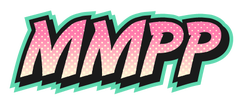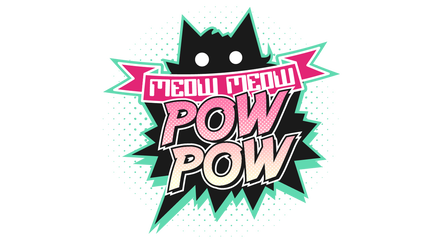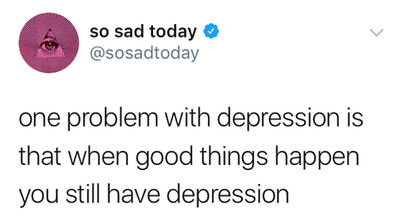|
I’ve been writing about depression ever since I was diagnosed with it at the age of nineteen. Perhaps, attempting to write about depression is more accurate. After I saw a doctor at the Oregon Health and Sciences University in Portland, Oregon who prescribed me Fluoxetine (more commonly known as Prozac), I began a ten-year journey through prescription medications, self-medication, therapy, and writing. I basically began writing to comprehend my own brain, my own melancholy, and my experience in the world. I would write to piece together (in a sort of cognitive behavioral way) why I do the things I do. Writing acted as both catharsis and therapy, but it also provided me with a reason or meaning to endure the elements of life, including depression. “Sure,” I would think, “I’m depressed because the world is fucked up and some traumatic things have happened to me, but I will write a book about it and redeem said darkness!” However, as I began to work on a sort of memoir about depression and my life, I discovered that the subject is nearly as impenetrable to the writer as the cure is elusive to the sufferer.
Why is it that this strange illness that afflicts 1 in 5 Americans gets very little portrayal in books, movies, and essays? Perhaps because depression is, unfortunately, the least narrative based mental health disorder or illness. Depression is static, stagnant. Bipolar disorder has exciting, if troubling, manic swings. Personality disorders a cacophony of voices and unreliable narrators. Anorexia visceral and physical descriptions. Depression is the equivalent of photo negatives. Characterized more by what isn’t there, than what is—i.e, no color, no light. Everything more shadow-like, Stranger Things upside-down-like, wraith-like. The other trouble with depression is it’s not exactly a topic that shouts “MUST READ” or “BEST SELLER!” I learned this in a particularly harsh way when I tried to pitch my book to agents in New York as part of a writing conference. One agent summed up my pitch by saying to me, “That sounds depressing.” Another one of these New York agents told me that depression should be the subtext of the narrative and not the narrative itself. I understood their points, reading about depression is depressing, and yes, maybe more of a subplot than the actual plot (i.e., maybe that’s part of the problem); however, wasn’t that the point? I wanted to write a book that people who struggle with depression in daily life could relate to rather than focusing on sensational, un-relatable stories. But these agents were right to some degree—depression’s not a topic you can tackle head on for a variety of reasons. Depression has no narrative arc. This lack of narrative arc therefore stymies a book about depression because you end up overwhelming and, ultimately, depressing your reader. There is no story arc, no plot twists. It just is. The main difficulty with writing about depression is that you cannot write about it directly. It is too easy to fall into the “mimetic fallacy” in which the attempt to convey an emotional state mirrors that state in writing too closely and leaves the reader confused, foggy, and ultimately, depressed. It’s challenging to imitate depression through words, i.e., “A black wave descended over me in a fog of mist and confusion which then threw me into an abyss of which there was no escaping” might sound decent in an emo kid’s journal, but it’s really all just abstract sentiment that means nothing. Therefore, a horror film such as The Babadook becomes a better medium for portraying depression because it is an illness best described through metaphor and symbolism, poetry and fiction. The other difficulty writing about depression is that it cannot be isolated. It is cognitive, neurological, physical, and personal. Rooted in one’s life experience, personal history and view of the world, as much as in brain chemistry. Which is why the best methods of dealing with depression are holistic and include some combination of therapy and medication. Depression is complex. The thread of darkness is not easily found. “Scientists are gaining a more nuanced picture of what depression is,” says Mandy Oaklander in the cover story for a recent Time Magazine article titled “New Hope for Depression.” It’s not a “monolithic disease,” she says, “but probably dozens of distinct maladies—and they’re getting closer to learning what works for which kind of ailment.” There hasn’t been a major breakthrough with regard to treatment of depression in years and suicide in America is the highest it’s been in thirty years. “Depression is your body’s way of telling you that you need to deal with something,” says Dr. James Fadiman, one of the foremost researchers of psychedelics. Fadiman says that LSD and Psilocybin can be helpful tools for depression because they make you feel just good enough to deal with things in your life that you might not be dealing with. There are other means of writing about depression besides literature of course. Music is perhaps the best medium for writing about depression and it must be one reason why I am always drawn back to melancholic indie bands of the late 90’s and early 00’s. Artists like Kendrick Lamar are changing this though, as his two latest albums--To Pimp a Butterfly and Damn—reference depression extensively. Rap artists like Tyler the Creator and Earl Sweatshirt are also tackling topics of mental health, agoraphobia, and inner emotional distress. Another medium besides music might be that of comedy, because really at the end of the day, what else can you do but laugh at the whole situation? There’s even a podcast called “The Hilarious World of Depression.” Patton Oswalt, Paul Gilmartin, and Chris Gethard also reference depression and mental health and comedy in their various specials, shows, and podcasts. Although, in a way, comedy is just another method of distraction and avoidance. What started with some minor melancholy and Seasonal Affective Disorder became more serious, chronic depression for me. Life, all of it, began to grate on me. Like Michael Keaton says in the film Birdman, I felt like life was constantly “hitting me in the balls with a tiny little hammer.” I experienced the death of any and all of my romantic expectations for marriage, life, my writing career, or the world in the general, hiding behind bottles of whiskey and packs of American Spirits, small trips to the grocery store feeling like expeditions to Mt. Everest. I ultimately discovered, however, that there would be no “one” miraculous thing that cured my depression as much as I wished for it to, whether it was in the form of literary fame, science, religion, or, sadly, psychedelics. The best way to manage and contain this black disease is a combination of all of the above. Medication, therapy, love, music, meaning, purpose, and perhaps spirituality or psychedelics depending on what you’re into. But there is no one cure. Depression is like finding out you have a disease that may or may not have a cure, but that if there is a cure, it’s some strange voodoo remedy that involves stirring a bunch of ingredients into a smoldering cauldron. You then throw everything in that cauldron against a wall and hope something sticks. Then, after some experimentation, you hopefully find the things that make the most difference and incorporate them into your life. However, now I know that even if I never publish a memoir on depression, there is a sense that the goal to understand, to cathart, to resolve through art, gave my depression—and hence, my life—a purpose and a meaning I would not have had during the last five to ten years without it. And in this sense I think I can say, while I may have never successfully written about depression, writing has helped me successfully deal with my depression, and for that, I am, at the very least, grateful. |
AuthorOur fabulous blog team Archives
June 2024
CategoriesAll 12 Songs Art Art And Athletes Book Review Chorus Blog Date This Book Game Of Narratives Guest Blog Letter From The Editor Lifehacks Movies Of 2019 Music Pup Sounds Smackdown Strive For 55 Summer Playlists |




 RSS Feed
RSS Feed